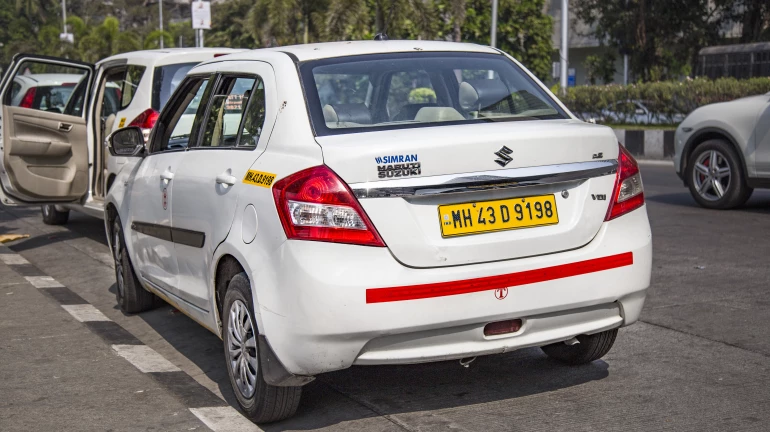
Those looking to take an auto or taxi in Mumbai, Thane, or Navi Mumbai after midnight on March 1 will find that the minimum fare has risen to ₹27 for a three-wheeler auto, and ₹32 for a taxi or kaali peeli. The announcement was made by the State Transport Ministry while releasing the new tariff cards on Saturday, February 27.
The new tariff cards are valid for autos, taxis, and Cool Cabs between March 1 to May 31. Drivers and owners of autos, cabs, etc will have to use this time to recalibrate their electronic meters. Transport Chief Avinash Dhakne said that starting June 1, fares will be collected only via electronic meters.
Read - In A First, Central Railway Gets E-Autos With Women Drivers At Thane Station
“The tariff card will help auto and taxi drivers collect revised fares from Day 1. The card will show the distance (in km) and the old (existing) fares corresponding to the new (revised) fares. So, it will be easy to check the meter which is not recalibrated and the equivalent fare in the tariff card,” he elaborated.
Officials from RTO (Regional Transport Office) said that the tariff cards can be used by auto and kaali-peelis until they update or recalibrate the meter so as to better inform the passengers of the fare.
As for the process of recalibrating meters, a senior RTO official said, “To make it simpler and methodical, we have framed a timetable for autos and taxis to arrive at the meter shops and RTOs for the recalibration. For example, vehicles whose registration number ends in ‘0’ will first arrive for recalibration between March 1 and 7. This will be followed by vehicles with digit ‘1’ from March 8 to 14 and ‘2’ from March 15 to 21 and so on till the last digit ‘9’ from May 3 to 9.”
The official added that the rest of the days in May will be used for autos, cabs etc that could not appear for the scheduled date of meter recalibration.
Sources indicate that the upgradation of the meter could likely cost up to ₹700 per vehicle. The Mumbai Metropolitan Region will have around 4.6 lakh autos and 60,000 taxis that are eligible for meter recalibration.
Officials will deploy up to 300 meter repairers to handle the recalibration process. Upgrading a meter includes removing the seal, installing a newly recalibrated chip provided by the meter manufacturer followed by a bench test of the meter by the authorized testing agency, and fixing the first seal.
Also read - Only One In Five Taxi Drivers Was Wearing A Mask In Sion, Dadar And Parel
This is followed by the fitment of the meter to the taxi or auto conducted by the repairer and a final inspection in front of the Inspector of Motor Vehicles for a real-world road test. After a successful road test, the second seal is fixed before the auto or taxi can take passengers again.
Officials are quite wary of the recent surge in COVID-19 cases across Mumbai and have said that proper precautions will be taken to ensure taxi or auto drivers aren’t put in harm’s way as the meter recalibration process officially begins.
“The government will ensure that auto and taxi drivers/owners are not put to risk by limiting the number of people at every meter repairer shop and RTO premises,” a senior transport official was quoted as saying by TOI.
Read - Base Fares Of Auto, Taxi In Mumbai Hiked By INR 3 Amid The Increase In Fuel Rates





